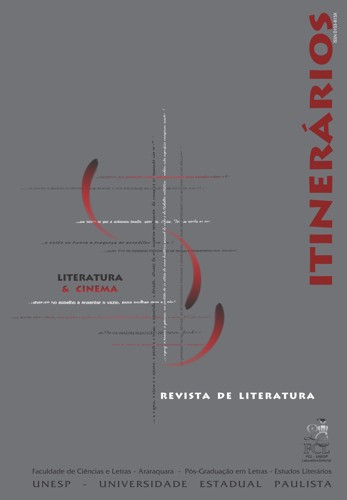Remissive and digressive adaptation: the transposition of metafiction to the cinema
DOI:
https://doi.org/10.58943/irl.v0i36.5623Keywords:
Metafiction, Adaptation, Mise-en-abyme,Abstract
This paper deals with the filmic adaptation of the metafictional narrative The French Lieutenant´s Woman (1967), a novel by John Fowles. Using the terminology and concepts by Gérard Genette, Jacques Aumond, and Linda Hutcheon, this text tries to demonstrate how narratives considered “unfilmable” (FOWLES, 1980) find their ways into films. These ways are specific of the filmic language and can recreate their source as successful movies. The author of this text proposes two types of adaptation: remissive adaptation (when the spectator recognizes, while he watches the film, the narrative and the narration of the hypotext or source text) and digressive adaptation (when the spectator recognizes, while he watches the film, the narrative alone of the hypotext). The author reaches the conclusion that the film The French Lieutenant´s Woman, and its mise-en-abyme technique, is at the same time the result of remissive adaptation (if we consider its 19th Century internal frame) and of digressive adaptation (if we consider its 20th Century external frame, that includes the comments about Victorian fiction registered in the novel by the intrusive narrator).
Downloads
Published
Issue
Section
License
Os manuscritos aceitos e publicados são de propriedade da revista Itinerários. É vedada a submissão integral ou parcial do manuscrito a qualquer outro periódico. A responsabilidade do conteúdo dos artigos é exclusiva dos autores. É vedada a tradução para outro idioma sem a autorização escrita do Editor ouvida a Comissão Editorial.

